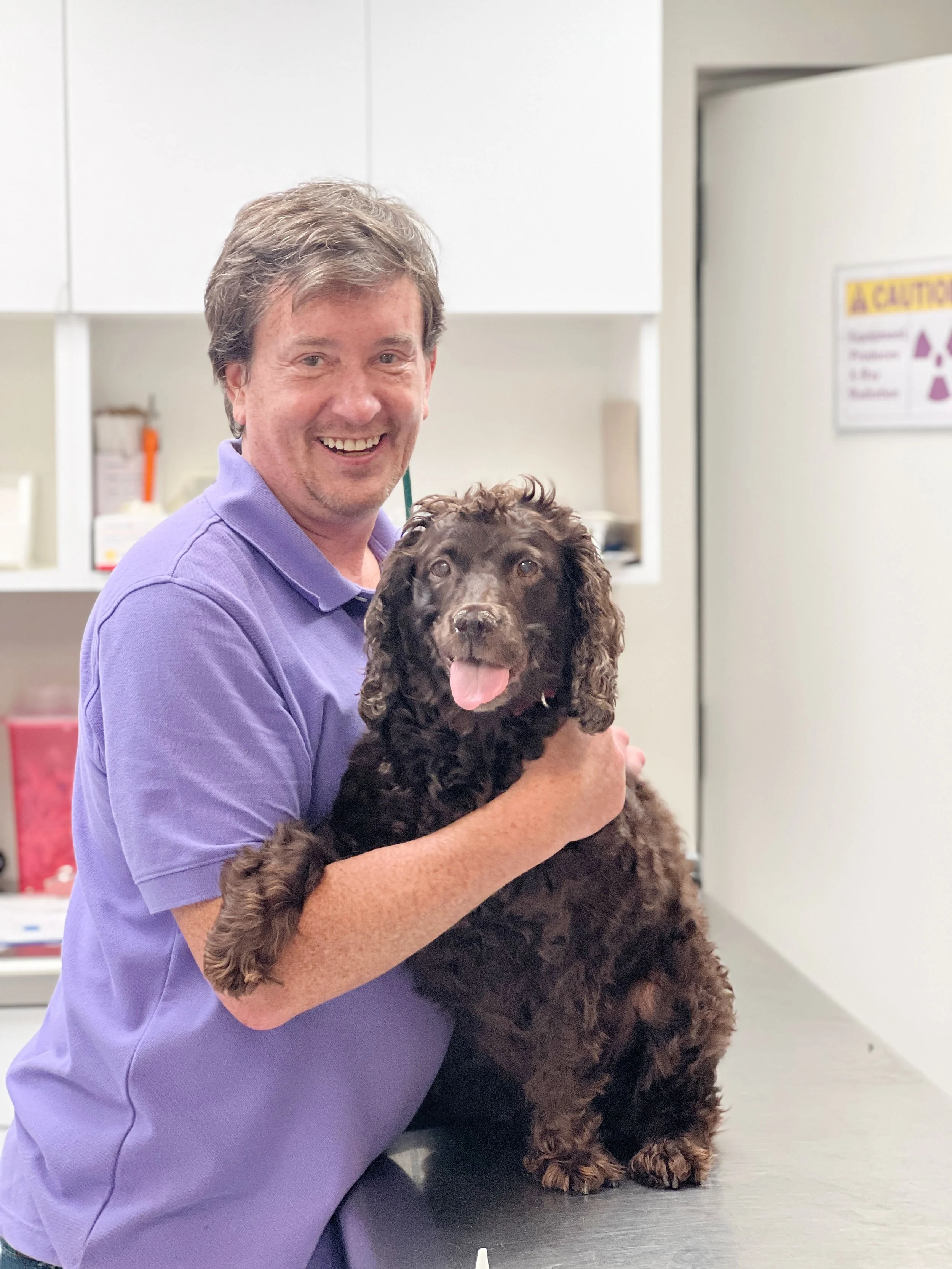Dental Cleaning for your Dog or Cat
All of our Dental cleaning procedures are performed by one of our Veterinarians assisted by a technician.
This is very important, as most veterinarian hospitals have their technician or assistant perform this delicate procedure without the guidance of a veterinarian.
Would you let years go by between visits to the dentist? Probably not! Your pet's dental health is just as important to his or her overall health as your dental health is to your general health. To help veterinarians and their teams provide excellent dental care for dogs and cats and educate pet owners about the importance of proper dental care throughout their pets' lives, the American Animal Hospital Association (AAHA) has developed the AAHA Dental Care Guidelines for Dogs and Cats.
Dental Care at VCB
Veterinarians can perform a basic oral examination on patients that are awake. However, a short-lasting anesthetic is required in order to provide a complete and thorough examination as well as dental cleanings. The AAHA Dental Care Guidelines recommend regular oral examinations and dental cleanings, under general anesthesia, for all adult dogs and cats. AAHA recommends these procedures at least annually starting at one year of age for cats and small-breed dogs, and at two years of age for large-breed dogs. The guidelines further recommend the following:
Pre-anesthetic Exam
Whenever anesthesia is needed, special considerations are taken to help ensure the safety of your pet. Your veterinarian will thoroughly examine your pet to make sure he/she is healthy enough to undergo anesthesia. All animals at the Veterinary Center of Buckhead who are scheduled for surgery undergo a routine pre-anesthetic blood test to check the health of the kidneys and liver as well as to check for anemia and hydration. This test insures that your pet has the greatest chance of having a problem free surgery and quick recovery. The testing is done in-house the day of the surgery.
Anesthesia Monitoring
During anesthesia, the monitoring and recording of your pet's vital signs (such as body temperature, heart rate, and respiration, as well as other important factors) is important. This helps ensure the safety of your pet while undergoing anesthesia.
Scaling & Polishing
Veterinarians are advised to use similar instruments as human dentists to remove plaque and calculus from your pet's teeth. To smooth out any scratches in the tooth enamel, polishing with a special paste is also recommended.
Dental Radiographs
Radiographs (x-rays) of the teeth are sometimes needed to evaluate your pet's oral health. X-rays can aid the veterinarian greatly in detecting abnormalities that cannot be detected under examination alone. In some cases, x-rays can confirm the need for extraction of teeth that are loose or badly infected.
Home Dental Care
Your pet's dental care doesn't rest with your veterinarian alone. As a pet owner, you play a pivotal role in helping ensure your pet's dental health through regular teeth brushing. Remember... pets can live longer, healthier lives if oral health care is managed and maintained throughout their lives. Talk to your veterinarian about developing a dental care plan for your furry friend.
